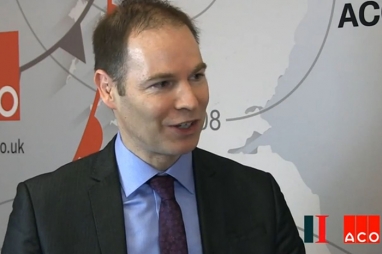- Кросівки nike air max correlate (оригінал, 39 р). — цена 750 грн в каталоге Кроссовки ✓ Купить женские вещи по доступной цене на Шафе, Украина #109005122 , nike kyrie 1 easter on feet images and names free
- Latest Nike Air Max 97 Trainer Releases & Next Drops , Nike Air Jordan Retro I High OG Black Metallic Gold 2020 , IetpShops
- adidas adi ease amazon prime phone
- adidas mercury vintage cars price list Release Date , SBD , petite adidas inventory management system flowchart
- 👟 кроссовки adidas streetball cordura адидас / наложка bs👟 — цена 2540 грн в каталоге Кроссовки ✓ Купить мужские вещи по доступной цене на Шафе , adidas Originals Sustainable Stan Smiths Vita sneakers med heltäckande grafiskt mönster , Украина #126359384
- kids air jordan
- air jordan 4 og fire red DC7770 160 release details price
- air jordan 1 retro high og university blue 555088 134
- Air Jordan 1 Blue Chill Womens CD0461 401 Release Date 4
- on feet air jordan 1 low chicago
- Home
- News and analysis
- Info hubs
- Events
- Video
- Case Studies
- About us
- Magazine
- Advertising
Produced for the industry by the Association for Consultancy and Engineering
Opinion
Split the Environment Agency to help tackle flooding

In the last month of 2015 environmental topics had an unusually high profile in the UK news agenda. Two stories in particular stood out – the Paris climate change summit in early December and the widespread UK flooding that continued through to the year’s end. Both topics are likely to continue to be prominent in 2016.
Indeed, the link between them will be a news story in its own right, given the prime minister’s announcement that we must go back to the drawing board in predicting the future scale and impact of flooding. In the wake of the Paris deal, now the initial excitement is past and the flags have been taken down, the story during 2016 will be the extent to which the agreements made in Paris start to affect business and policy decisions.
In the UK, a key factor in determining this will be what flows from the climate change committee’s announcement that it will review UK carbon budgets and policy plans in the light of the commitment made in Paris to limit climate change not just to 2 deg C but to 1.5 deg C.
This is because the present UK target of an 80 per cent carbon reduction by 2050 is based on a UK contribution to a 2 deg C limit, so targets and policies will need toughening up. Flooding, meanwhile, is a topic we need to get used to. In the past a surge of media and political interest during actual floods would quickly dissipate as the waters receded.
Now there is a growing realisation that catastrophic flood events are happening repeatedly and current policies and flood defences are proving ineffective. For example, DEFRA has in vain sought effective ways to encourage householders in flood-risk areas to take some personal responsibility for property-level flood protection – schemes such as the repair and renew grant, which provides match funding for householders’ own spend, have seen little take-up.
The Environment Agency has also come in for heavy criticism but has had its own resources cut back. In my view, its remit is too wide and its flood responsibilities should be divorced from its remit to regulate industrial plant emissions – a completely different job, requiring different skills and people. What else will push green issues on to the news front pages? Air quality is one topic – I anticipate a further legal challenge to the government’s airquality plans in the spring, followed by a London mayoral election in which both Sadiq Khan and Zac Goldsmith will want to be on the front foot on air pollution.
The endless Heathrow debate will also focus attention on this topic, as opponents of a third runway have realised that air quality around the airport is a promising line of attack. Much of the political agenda in 2016 will be shaped by the EU referendum. Here, green issues are noticeable by their absence. The prime minister used to include environmental legislation in the list of issues where the EU had got too big for its boots, but it no longer features in the headline UK negotiation position for EU reform, and I expect the government will not want it brought up in the referendum campaign. The Brexit campaign, though, may flag up alleged problems caused by “green red tape”.
A final green topic for 2016 is brownfield development. Housing is a major political issue, and the strength of the CPRE has pushed George Osborne to emphasise increasingly that he wants houses built on brownfield land.
The Housing and Planning Bill contains a proposal for a brownfield register, and there is also a £1bn clean-up fund for brownfield sites – which was promised in the Conservative manifesto but the details of which ministers are (I’m told) yet to decide. It will be the headline housing numbers and targets that make the news, but there will be a lot of developments in these technical brownfield policy areas that are significant for any company involved as contractor or adviser on brownfield development.
Matthew Farrow is director-general of the Environmental Industries Commission, the leading trade body for environmental firms: www.eic-uk.co.uk





